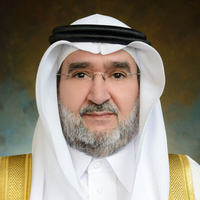The November 2024 U.S. presidential election will have serious implications for the world. In the fifth and final installment of a five-part series, this global perspectives roundup features four reflections on why the U.S. election outcome matters for the Middle East.
Next U.S. Administration Will Have Strong Impact on Mideast
The United States is a global power, and due to its substantial political, economic, and military influence in Middle Eastern politics, it can also be considered a regional power there. The upcoming U.S. presidential election thus holds significant importance for the Middle East, as its outcome has the potential to significantly reshape U.S. foreign policy, bearing a direct impact on regional dynamics in terms of security, diplomacy, and economic relations.
First, U.S. foreign policy in the Middle East has historically shaped regional security and geopolitical dynamics since the early 1960s. Washington plays a key role in managing conflicts, combating terrorism, and mediating peace efforts, especially in Syria, Iraq, and Yemen. Changes in presidential administrations can alter the United States’ approach to military engagements, counterterrorism efforts, and peace negotiations, impacting stability and power balances. For example, while a more interventionist president could favor direct military involvement, a more isolationist approach could lead to troop withdrawals and a power vacuum, causing ripple effects across the region.
Second, U.S. alliances with key Middle Eastern states—particularly the Gulf Cooperation Council (GCC) countries of Israel, Egypt, and Jordan—hinge on the administration in power. The president’s stance on arms sales, military cooperation, and security agreements can strengthen or weaken those alliances. A clear example was the shift in policies on Iran’s nuclear program between the Barack Obama-era nuclear deal and Donald Trump’s maximum pressure campaign, and the great influence it had on regional security calculations in the region.
Furthermore, economic ties between the United States and Middle Eastern countries are crucial. U.S. sanctions policies and trade agreements often guide energy markets, trade relations, and investment flows. Elections can bring changes to sanctions regimes, affecting regional economies, particularly in oil-exporting countries like Saudi Arabia and Iran.
Finally, U.S. elections impact diplomatic initiatives, including efforts in Arab-Israeli normalization, human rights, and the promotion of democracy. Different administrations prioritize those issues to varying degrees, influencing the regional agenda and global perceptions of U.S. leadership in the Middle East. Thus, the U.S. elections are closely monitored in the Middle East for the potential policy shifts they could bring to key regional issues.
A Wary, Unsettled Mideast Awaits U.S. Elections
At a time when Israeli and Middle Eastern security is shifting at breakneck speed, the coming U.S. elections have tremendous implications for the region.
On a few crucial fronts, policy areas will remain the same no matter which candidate wins. China will likely remain the main rival of the United States, and Washington will seek to curtail its reach, setting the stage for constant pressure to lock out Chinese influence in the Middle East. Second, either administration would almost definitely resume President Joe Biden’s pursuit of an Israeli-Saudi bargain. Third, both Vice President Kamala Harris and former President Donald Trump voice strong commitment to Israel’s security. However, this is where the similarities end.
Generally, Trump represents a high risk–high reward path for regional actors. He is viewed by leaders and experts as willing to use force against enemies, but his reputation for volatility could lead U.S. regional allies to worry whether current security commitments will persist. Harris is expected to maintain the current administration’s approach, supporting regional allies while aiming to limit armed conflicts involving major shows of U.S. force.
On Iran, Trump’s first term was marked by withdrawing from the Joint Comprehensive Plan of Action (the Iran nuclear deal), a “maximum pressure” sanction campaign, and the assassination of Qasem Soleiman. For those reasons, it is understandable that Tehran views Trump’s possible return to office with concern. Harris recently declared Iran the United States’ greatest adversary. Nevertheless, she is more likely to opt for negotiations to roll back Iran’s nuclear program than use force.
Both candidates have called for an end to the war between Israel and Iran’s proxies like Hamas, Hezbollah, the Houthis and Iraqi Shiite militias, but mean different things by it. Trump has voiced support for high degrees of force on Israel’s part to achieve its goals. Meanwhile, Harris consistently voices support for a cease-fire and hostage deal, and expresses concern for the well-being of Palestinian civilians. Still, she has ruled out an arms embargo on Israel. Whether she would expand restrictions on the sale of specific munitions remains to be seen.
The two are also likely to diverge on the relationship between a Saudi-Israeli deal and broader questions of regional peace. Harris will likely connect Saudi-Israeli normalization to Israeli commitment to Palestinian statehood. She will also likely intensify current sanctions against violent Jewish settlers. Trump, for his part, would likely support Israeli-Saudi normalization without a Palestinian component, and could endorse Israeli annexation in the West Bank.
For Israel, this amounts to a mixed balance. Trump will likely grant Israel more freedom of action, but his policy on the war in Ukraine could have the paradoxical effect of boosting Iran. Trump calls for an end to the war, even if that entails Ukrainian defeat, while Harris would maintain support for Kyiv. A Russian victory and corollary Ukrainian defeat would favor the anti-liberal democratic alliance in which Iran and its proxies play a key part.
Harris Could Change the Paradigm, but Will She?
Israel’s war in Gaza is a prism that showcases long term policy shifts. If current U.S. policy persists, the country’s power is likely to wane in the region.
Donald Trump’s victory would keep this status quo, amplified by a blatant disregard for the institutions of international law. He would formally support the annexation of the West Bank, which de jure has already happened. In an extreme, yet not inconceivable scenario, his administration could back and embolden the Israeli far right in forcing Palestinians out of the occupied territories and into Jordan and Egypt, dealing the final blow to the Palestinian question.
Benjamin Netanyahu is currently on track to annihilate as many hostile neighbors as possible, not excluding the Iranian government. One could imagine a situation where Netanyahu would try to convince Trump that it is time to change the “terrorist regime” in Tehran. The post-October 7 Middle East, where anything is possible, does not exclude this scenario.
Since Barack Obama famously and frustratedly called Israel and Saudi Arabia “high maintenance allies” and signed the Iran nuclear deal, neither Donald Trump nor Joe Biden have reevaluated U.S. interests in the region. Ultimately Biden’s policy toward Israel, Palestine, Iran, and the Gulf differed little from Donald Trump’s—there was a continued push for normalization between Israel and Saudi Arabia while ignoring the situation of the Palestinians, no new deal with Iran, and no reversal of Trump’s decision to move the U.S. embassy to Jerusalem or recognize the annexation of the occupied Golan Heights.
It is only a slight exaggeration to infer that international law and its institutions were as irrelevant for Biden as they were for Trump. Due to an unwillingness or inability to change the course, the United States allowed Israel to wage a war on Gaza that has resulted in more than forty-one thousand civilian deaths, and disregard the international institutions which accuse Israel of war crimes and crimes against humanity. The United Nations, the International Criminal Court, and the International Court of Justice, without the support of the United States, seem powerless in forcing compliance with findings and calls for change in the prosecution of war.
Kamala Harris’ policy in the Middle East is a more mysterious matter. Apart from a slight change of tone, she could continue the policy of her predecessor, making the United States more and more irrelevant. It is no longer a mediator nor an instigator of wider regional policies but merely Israel’s supporter that reacts to developments. Even though the Democratic base is far more critical of Israel than it was a decade ago and a generational change is underway, those factors have not yet translated into a new makeup of Congress or the emergence of a Democratic elite that espouses these views and could inform Harris’ policies.
Harris, however, is a former prosecutor. She understands the importance of law and its role as a linchpin for democracies and the transatlantic relationship. She voted to stop U.S. involvement alongside Saudi Arabia in the war in Yemen. She also sees the connection with the war in Ukraine and the validity of the double standard accusations towards the West. It is possible that she could reevaluate U.S. Middle East policy and create a coalition for wider peace that includes the existence of an independent Palestine. It would attest to the strength of the United States and guarantee long-term security for Israel.
Declining U.S. Influence in a Changing Mideast
The Middle East is once more the focus of American politics. The war in Gaza, the unsettled situation in Lebanon, and the looming confrontation between Iran and Israel have generated their share of commentary and recriminations. But, as is often the case, beneath the rancor there lies a rough consensus. Both political parties want to somehow end the war in Gaza, prevent a regional conflict, revamp the Abraham Accords, and negotiate some kind of limits on Iran’s nuclear program. However, whoever wins this November will find that they have a lot less influence over developments in the Middle East than they originally assumed.
Today, the Middle East seems to have a mind of its own. An Israel that was brutally attacked on October 7 has less patience for U.S. diplomats arguing for a cease-fire or various censures by international organizations. Israel is determined to win and not settle for an armistice. Its borders are exposed, and its citizens feel unsafe. And it feels it is on a winning roll. In a changing region where old demarcations and redlines are of little use, Iran seems determined to get the ultimate weapon of power projection—the nuclear bomb. Proxies and missiles have not served it as well as it once assumed. Arms control and trading carrots for sticks with the Americans have little use for the beleaguered mullahs locked into an escalating conflict with Israel. Additionally, the Gulf states hovering between the two antagonists have little appetite for expansion of the Abraham Accords at a time when the issue of Palestinian statehood is unsettled.
After the election, whoever wins will try to reassert U.S. influence in the region. The United States still has many tools at its disposal. It can choose to withhold arms to Israel or impose even more debilitating sanctions on Iran. But in a region where antagonists see all threats as nearly existential, such levers of influence may be less effective than they were before October 7. It is too premature to say that the Middle East has entered the post-American phase, but it certainly is less concerned about U.S. mandates than it once was.











